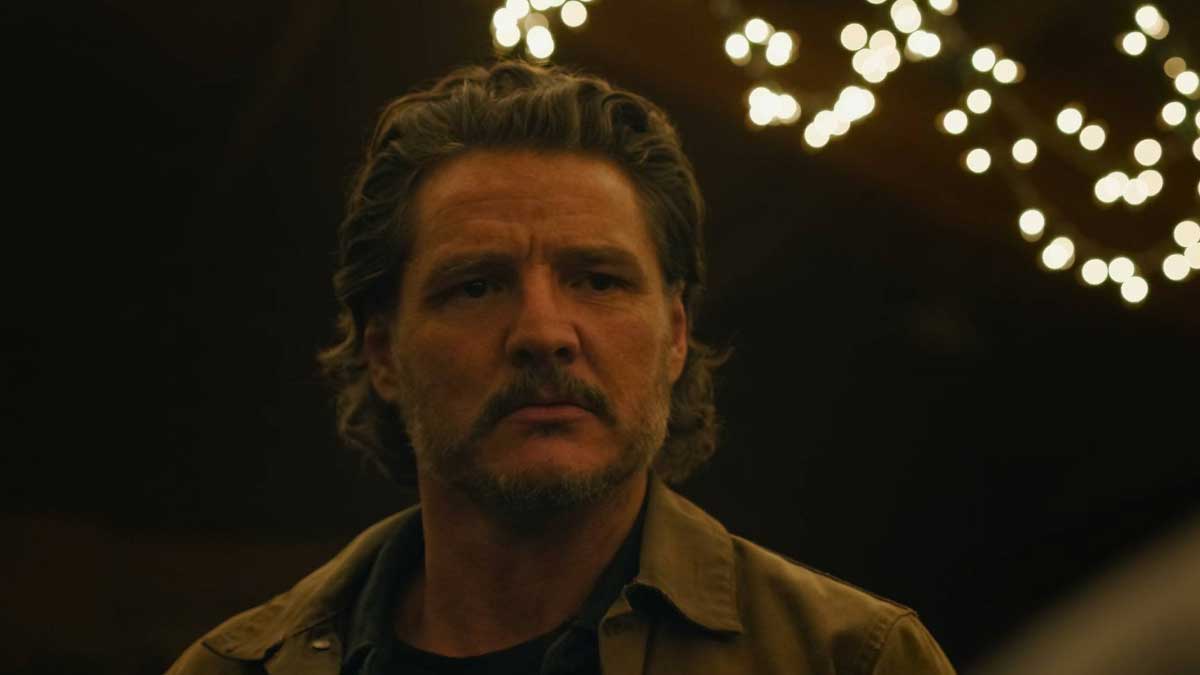- Home
- Billionaires
- Investing Newsletters
- 193CC 1000
- Article Layout 2
- Article Layout 3
- Article Layout 4
- Article Layout 5
- Article Layout 6
- Article Layout 7
- Article Layout 8
- Article Layout 9
- Article Layout 10
- Article Layout 11
- Article Layout 12
- Article Layout 13
- Article Layout 14
- Article Sidebar
- Post Format
- pages
- Archive Layouts
- Post Gallery
- Post Video Background
- Post Review
- Sponsored Post
- Leadership
- Business
- Money
- Small Business
- Innovation
- Shop
Recent Posts
The Last of Us Season 2: First Trailer Sparks Mixed Reactions

September 26th, known as “Outbreak Day,” is a significant date in the universe of The Last of Us, the acclaimed franchise developed by Naughty Dog. This day marks the moment the cordyceps virus ravaged humanity, and for over a decade, fans have commemorated it in various ways. This year, the occasion is particularly special, as HBO has unveiled the first trailer for Season 2 of its hit post-apocalyptic series, The Last of Us, much to the anticipation of its devoted followers.
The series, which adapts the beloved video game of the same name, stars Pedro Pascal as Joel and Bella Ramsey as Ellie, both of whom return for the new season. Notably, Kaitlyn Dever joins the cast as Abby, a character from the second game, and there’s been some chatter regarding her resemblance to the game version of Ellie, contrasting with Ramsey’s interpretation.
The trailer is a captivating blend of fleeting moments filled with warmth and love interspersed with scenes of harrowing violence. It showcases a world that remains fraught with danger, emotional turmoil, and complex relationships. One of the standout elements is a scene featuring Catherine O’Hara’s character, who appears to take on a role as a therapist or community leader. In a poignant moment, she shares wisdom with Joel, advising, “You can’t heal something unless you’re brave enough to say it out loud.” Her words resonate deeply as they serve as a narrative thread, encouraging characters—and viewers—to confront their fears and truths.
The trailer evokes a sense of dread as it suggests that Joel must reckon with the consequences of his choices from the first season—and the original game. For those who may need a refresher, the first season concluded with a morally ambiguous moment where Joel, in a desperate attempt to save Ellie, killed a group of people, including doctors, to prevent her from being used as a means to create a cure for the cordyceps virus. This act of violence was cloaked in love for Ellie, whom he considered a surrogate daughter. However, it also raised profound ethical questions: Did Joel’s actions save Ellie, or did they doom humanity by preventing a potential cure?
As Season 2 unfolds, it is expected to delve into the aftermath of Joel’s choices, exploring themes of guilt and accountability. The storyline, if it mirrors that of the second game, will grapple with the repercussions of Joel’s lie and the ripple effect it has on both his and Ellie’s lives. While some fans argue that Joel’s actions were justified and morally sound, others contend that they were selfish and could lead to devastating consequences for humanity. The debate over whether one life should be sacrificed for the greater good is a central theme that will likely resonate throughout the new season.
The trailer, while masterfully crafted, refrains from revealing too much, which is a welcome departure from the trend of spoilers often found in promotional materials. Instead, it tantalizes viewers with glimpses of action, suspense, and emotional conflict, featuring familiar faces and introducing new ones, including Isabela Merced as Dina, Ellie’s love interest.
Critics have described The Last of Us Part II—the game on which the new season is based—as a “beautiful, terrible” sequel. This characterization raises questions about whether the upcoming season will live up to that reputation. While the excitement for the new trailer is palpable, there are also concerns regarding the portrayal of characters, particularly Bella Ramsey’s ability to embody a more mature and physically imposing version of Ellie. Though Ramsey is a talented actress, her physical appearance has prompted questions about her fit for the role in this darker narrative.
Moreover, fans are left wondering how the show will handle Abby’s character arc. Given that Abby’s storyline in the game was met with mixed reactions, her transition to television could either enhance or diminish her narrative impact. How showrunners Craig Mazin and Neil Druckmann choose to adapt this storyline will be crucial to the season’s success.
As the trailer concludes, a release window of 2025 is hinted at, though specific dates remain undisclosed. Mazin and Druckmann have indicated that this season will consist of just seven episodes, a reduction from the first season’s ten. This brevity raises eyebrows, especially when considering the expansive narrative of the second game and the pacing issues experienced in other shows, such as HBO’s The House of the Dragon, which suffered due to a similarly truncated season. However, there are hints that the second game’s storyline may be stretched across multiple seasons, which could ultimately be beneficial in terms of character development and pacing.
While excitement brews for the upcoming season, there is a palpable sense of apprehension regarding the extended wait time between seasons. Fans are becoming weary of lengthy gaps, and while it is unlikely that The Last of Us will face cancellation, the prolonged anticipation could pose risks, including shifts in audience engagement.
In conclusion, the release of the Season 2 trailer for The Last of Us has ignited a complex mixture of anticipation and concern. As fans prepare for a journey into a morally ambiguous world filled with love, betrayal, and survival, the hope is that the series will continue to honor the emotional weight of its source material while exploring the consequences of its characters’ choices. The coming months will undoubtedly be filled with speculation as viewers eagerly await the next chapter in this haunting narrative.
Recent Posts
Categories
- 193cc Digital Assets2
- 5G1
- Aerospace & Defense46
- AI37
- Arts3
- Banking & Insurance11
- Big Data3
- Billionaires462
- Boats & Planes1
- Business328
- Careers13
- Cars & Bikes76
- CEO Network1
- CFO Network17
- CHRO Network1
- CIO Network1
- Cloud10
- CMO Network18
- Commercial Real Estate7
- Consultant1
- Consumer Tech180
- CxO1
- Cybersecurity68
- Dining1
- Diversity, Equity & Inclusion4
- Education7
- Energy8
- Enterprise Tech29
- Events11
- Fintech1
- Food & Drink2
- Franchises1
- Freelance1
- Future Of Work2
- Games141
- GIG1
- Healthcare78
- Hollywood & Entertainment186
- Houses1
- Innovation42
- Investing2
- Investing Newsletters4
- Leadership65
- Lifestyle11
- Manufacturing1
- Markets20
- Media193
- Mobile phone1
- Money13
- Personal Finance2
- Policy567
- Real Estate1
- Research6
- Retail1
- Retirement1
- Small Business1
- SportsMoney33
- Style & Beauty1
- Success Income1
- Taxes2
- Travel10
- Uncategorized8
- Vices1
- Watches & Jewelry2
- world's billionaires431
Related Articles
Kraven the Hunter Struggles Without Spider-Man
Sony’s Kraven the Hunter experienced a catastrophic debut at the box office,...
By 193cc Agency CouncilDecember 16, 2024Peter Watts on Shaping the Armored Core Story in Secret Level
Peter Watts, a celebrated science fiction author best known for his novel...
By 193cc Agency CouncilDecember 16, 2024Turning Sony’s Spider-Man Spinoffs into Success
Sony’s Spider-Man Universe (SSU) of spinoffs has struggled to live up to...
By 193cc Agency CouncilDecember 12, 2024‘Star Wars: Skeleton Crew’ Faces Budget-Viewership Challenge
“Star Wars: Skeleton Crew” has made a strong impression with its first...
By 193cc Agency CouncilDecember 11, 2024















Leave a comment